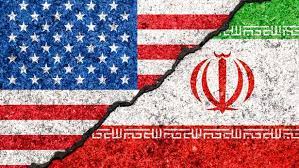Alliance Steel Settles with OFAC for $435,003 for Violations of the Iran Sanctions Program

Alliance Steel, a US company based in Oklahoma, agreed to pay $435,003 to OFAC to settle violations of the Iran Sanctions Program. Alliance Steel is a designer and manufacturer of prefabricated steel structures.
Alliance Steel voluntarily disclosed to OFAC 61 violations of the Iran Sanctions programs. Over a five-year period, Alliance Steel maintained a professional relationship with an Iran engineering company. The OFAV violations occurred when Alliance Steel engaged the Iran engineering company to provide engineering services.
Alliance is a domestic business, and sells exclusively to U.S. consumers. Alliance Steel does not market or sell to any international customers.

From October 2013 to October 2018, Alliance Steel imported engineering services from an Iran engineering company. Alliance Steel conducted its own engineering services internally. When its internal needs exceeded capacity, Alliance outsources the remaining work to this-party subcontractors. A senior Alliance Steel employee, Chief Engineer and Vice President of Engineering, outsources a significant portion of its engineering work to an Iran engineering company owned by his brother. Alliance Steel spent approximately $1,450,008 on engineering services from the Iran engineering company.
Even though the Chief Engineer and Vice President of Engineering was responsible for arranging the Iran engineering services, at least 12 other members of Alliance senior management knew about the transactions with the Iran engineering company. Further, a number of other senior officials were involved in the process of reviewing and approval of each transaction and issuing checks to the Iran engineering company.
As a U.S. company with no international operations, Alliance Steel explained that it was not attuned to the laws and regulations administered by OFAC. Because of its lack of familiarity with the OFAC sanctions regulations, Alliance Steel did not learn about its illegal transactions until Alliance Steel hired a new CEO in October 2018, who was aware of the Iran sanctions program and halted the Iran engineering services and instituted remedial measures to institute risk-based controls and prevent the recurrence of such conduct.

Alliance Steel voluntarily disclosed the conduct to OFAC and cooperated with OFAC’s investigation by providing detailed information in a well-organized and timely manner. Alliance Steel terminated its relationship with the Iranian engineering company and ceased all payments to the firm. Alliance terminated the employee responsible for the Iran engineering services. Alliance developed and implemented an export compliance policy, including OFAC training for management and employees.
OFAC noted that the Alliance Steel case “demonstrates the importance of developing and maintaining effective, risk- based sanctions compliance controls, even for companies operating predominantly within the United States. U.S. companies can risk violating OFAC regulations if they undertake even isolated or sporadic international business or contracting activities, and do not conduct basic regulatory diligence or have adequate personnel or policies to comply with U.S. sanctions requirements. It is particularly important for U.S. businesses to understand the sanctions risks attendant to doing business in comprehensively sanctioned jurisdictions such as Iran. Moreover, this enforcement action demonstrates the need to train and enable staff—including senior management—to identify and address potential violations of U.S. sanctions.”















